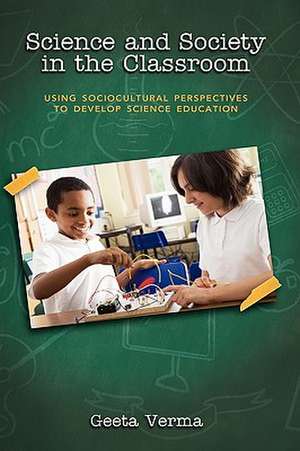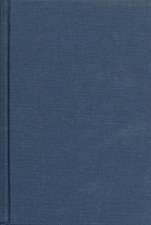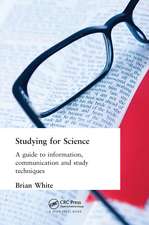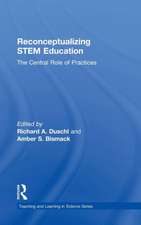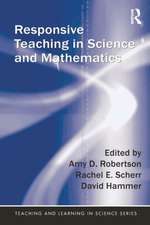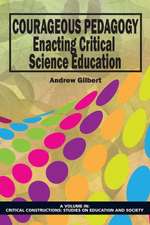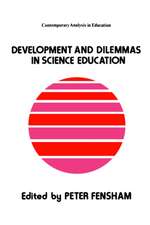Science and Society in the Classroom: Using Sociocultural Perspectives to Develop Science Education
Autor Geeta Vermaen Limba Engleză Hardback – 30 noi 2009
Preț: 595.05 lei
Preț vechi: 646.79 lei
-8% Nou
Puncte Express: 893
Preț estimativ în valută:
113.86€ • 118.65$ • 94.28£
113.86€ • 118.65$ • 94.28£
Carte tipărită la comandă
Livrare economică 03-17 aprilie
Preluare comenzi: 021 569.72.76
Specificații
ISBN-13: 9781604976595
ISBN-10: 1604976594
Pagini: 232
Ilustrații: 1
Dimensiuni: 152 x 229 x 18 mm
Greutate: 0.51 kg
Ediția:New.
Editura: Cambria Press
ISBN-10: 1604976594
Pagini: 232
Ilustrații: 1
Dimensiuni: 152 x 229 x 18 mm
Greutate: 0.51 kg
Ediția:New.
Editura: Cambria Press
